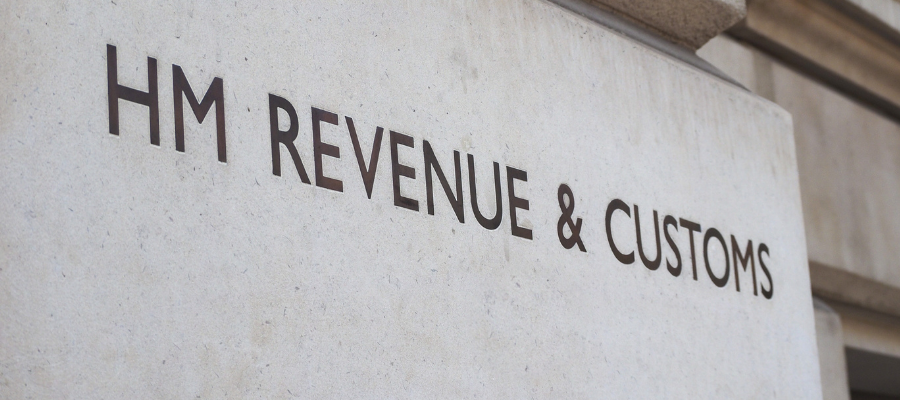🕒 Article read time: 2 minutes
HMRC notices change in habits as thousands more submit tax returns early

The trend of sending Self Assessment tax returns at the last minute every January is gradually changing in the UK, with thousands more people choosing to file early.
According to HMRC, last year 194,000 people submitted their tax returns between April and September 2023, a 7% increase year on year.
Taxpayers can submit Self Assessment tax return forms for the 2023/24 tax year from as early as 6 April 2024, the first day of the new tax year. And submitting early has a number of benefits, including:
Peace of mind
Some people file early for their peace of mind and to avoid the stress of last-minute filing.
Know what you owe
Filing early means you will know what you owe. This means you can plan your budgeting for the year and pay your tax bill in instalments if you need to – you can also get help if you find you can’t pay.
Get refunded quicker
You can find out sooner if you’ve paid too much tax during 2023-2024 and are owed a refund. HMRC will let you know as soon as your tax return has been processed and arrange for any overpayment to be refunded sooner too.
Receive the support you need
You can use HMRC’s digital services to do what you need to do quickly and easily online, a service rated highly for customer satisfaction, with a helpline and webchat advisers to provide support for customers who need specific extra help.
Proof of income
Filing early provides proof of income which you’ll need for a mortgage, loan or to claim benefits.
Plan ahead
Choosing to file your tax return early does not mean you have to pay HMRC any money early. The 31 January deadline for payment remains unchanged. If you choose to pay your tax bill earlier for your own convenience, that’s fine, but it’s entirely up to you. When you file early, you get to know what your tax bill is going to be, which can help you plan.
Budget plan
HMRC offers a Budget Payment Plan facility. Customers can choose how much and how often they want to pay by Direct Debit – putting you in full control of managing your bill.
Your payment options
Filing early will mean you have more time to investigate your payment options if you’re unable to pay in full by the deadline. HMRC is keen to help customers explore these options, which may include paying your tax bill in instalments through a Time to Pay arrangement - many customers can set this up online. Find out more: If you cannot pay your tax bill on time: Pay what you owe in instalments (Time to Pay) - GOV.UK (www.gov.uk).
Pay via your tax code
The deadline to file your completed 2023 to 2024 tax return online and pay any tax you owe is 31 January 2025. Filing before the end of December means you may have the option, if eligible, of paying anything owed through your PAYE tax code.
The easiest way to complete your tax return is online, via HMRC online services. More than 97 per cent of people do this. Doing it online is quick and secure: File your Self Assessment tax return online
Find out more about setting up your HMRC online services. Do not share your HMRC online username and password with anyone else.
Published On: 30/05/2024 15:00:00

Comments Section
If you are a Logistics UK member login to add comments.
News In brief
DfT’s consultation on lowering the minimum age requirement for train drivers could help ease the skills shortage across the sector and ensure rail freight has the drivers it needs to keep goods moving
Speaking about Logistics UK’s response to the consultation, Ellis Shelton, Senior Policy Advisor, said:
“The government has set a target of at least 75% growth in rail freight by 2050 and as more freight is moved on rails, it is inevitable that more drivers will be needed to achieve this growth.
"However, the sector is facing a significant skills shortage and up to 120,000 additional people will be required by 2030 with the demand for skills peaking around 2025. This is largely as a result of an ageing workforce and nearly 50,000 rail industry employees are expected to retire by 2030.
“Only 5% of the rail industry’s workforce are under 25 so lowering the minimum age for train drivers to 18 is a practical step to encourage younger people into the industry and address the ageing workforce, but an efficient rail network needs more than just drivers.
“There are numerous critical roles alongside drivers, such as engineers and technicians, where there are also skills shortages and Logistics UK has been pressing government for some time for a clear national strategy to help address the skills gap in this vital sector.
"The Generation Logistics campaign is part of the solution, but there still needs to be better signposting of the careers available and more support for apprenticeships through government funding and less complicated access.”
Latest articles
Legislation update - June 2025
Consultations which opened in June 2025
Read time: 5 minutes
View article
Generation Logistics Case Study
Naveed Rafeeq, Graduate Software Engineer - Unipart.
Read time: 2 minutes
View article
Drone Rangers to monitor UK infrastructure
The U.K. Civil Aviation Authority (CAA) has given authority to drone consulting firm Drone Major to conduct the U.K.’s first beyond visual line of sight (BVLOS) drone flights over the U.K.’s critical national infrastructure, initially some stretches of railway.
Read time: 2 minutes
View article